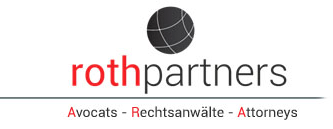
CORONAVIRUS – COVID 19
WHAT TYPE OF STATE AID BY THE FRENCH GOVERNMENT IS AVAILABLE ?
Due to the impact of the coronavirus epidemic on economic activity, the French government has announced multiple State aids for companies in difficulties during this crisis.
Especially smaller businesses as well as liberal and independent professionals, who are affected the most, shall benefit from the measures taken by the government.
France promises 45 billion euros to save companies likely to face bankruptcy due to the coronavirus lockdown.
1/ Short-time work
If a company is forced to close down due to a lack of activity, if companies are active in sectors whose activity cannot be carried out by telework or whose workplace is located in a restricted zone, the applicable regulations permit the use of short-time work.
In the case of short-time work, employees are compensated for the loss of income caused by the reduction in their working hours. The State helps employers to finance this compensation. In this case, the employment contract is suspended, but the employees receive a wage continuation payment from the employer.
Company must pay a compensation up to 70% of the gross salary to their employees. For employees living on the minimum wage, the compensation must be 100% of the gross salary.
The company will be reimbursed by the state up to 6.927 euros gross month salary, 4,5x the minimum wage.
A 30-day period, with retroactive effect, is granted to companies to file a request.
Since 27 March 2020, this measure also applies by decree of the French government to companies that do not have a branch or subsidiary in France but employ long-term employees in France and pay social security contributions due in France. These companies can now apply for short-time work compensation for their employees in France if their business activities have to be temporarily suspended.
Shortly before, the DIRECCTE Grand Est ( Social affairs Administration for the eastern part of France ) had excluded foreign companies from this measure, citing the Labor Code as its motivation.
2/ Deferral of payment of social and fiscal contributions
For companies, it is possible to ask the department responsible for corporate tax to postpone the installment payment of their next direct tax due without penalty. The deferral of the outstanding tax will be granted for a period of three months without examination of further evidence and will not result in any penalty surcharges. In addition, companies that are in particular difficulties have the option of requesting a tax refund for March or object to the debit by revoking the Direct Debit Mandate.
Social security contributions payable to the URSSAF may be deferred, in whole or in part, without penalty.
For self-employed workers, it is possible at any time to adjust the amount of the debit installments to the professional income tax. Furthermore, it is also possible to postpone the payment of the tax installments from one month to the next up to three times if monthly instalments are involved, or from one quarter to the next if quarterly installments are involved.
The deadline for self-employed workers of 20 March 2020 to pay the social security contributions will not be enforced. The dues should be smoothed over the other months of the year. In addition, self employed workers may request an adjustment of their payment schedule, payment deadlines without penalty or increase, as well as the intervention of the social action for the partial assumption of their contributions.
3/ Deferral of payment of rent, gas, water and electricity bills
The President of the Republic announced on Monday 16 March 2020 the postponement of the payment of rents, water, gas and electricity bills for the smallest companies in difficulty.
The smallest companies eligible for the solidarity fund ( see here below) financed by the State and the Regions will be able to benefit from the right to defer payment of water, electricity and gas bills. It is sufficient to call or contact the supplier and demand an amicable postponement.
The Economics Minister Bruno le Maire, asked landlords to accept from small and medium- sized businesses to defer their rents, if it is possible to do so.
For very small businesses and small and medium-sized enterprises whose activity has been interrupted by decree, these measures will be applied automatically and without considering their particular situation.
4/Solidarity fund financed by the State and Regions
For small businesses and most affected by this crisis the State has set up a solidarity fund to which big enterprises are able to contribute. The government promised a simple and fast procedure to profit from this fund.
The State aid, which may sum up to 3,500 euros, concerns very small businesses, micro entrepreneur and self-employed workers which have a turnover of less than EUR 1 million and an annual taxable profit of less than EUR 60 000 and who are furthermore object to administrative closure or who experienced a loss of turnover of more than 50% in March 2020 compared to March 2019.
From 1 April, all companies concerned will be able to make a simple declaration on the tax authorities’ website to receive aid of up to €1,500. This sum will be tax-free. From 15 April, the companies experiencing the most difficulties will be able to obtain, on a case-by-case basis from the Regions, additional aid of €2 000.
To profit from these measures, companies must registered their request on the Ministry of finances ‘s website impots.gouv.fr
5/ Mobilization of up to 300 billion euros from the State to guarantee bank loans
On March 25, 2020, the French government launched the program for state-guaranteed cash loans. The State thus guarantees 300 billion euros in loans. The French investment bank Bpifrance is the lead bank and includes all member banks of the French Banking Federation.
Until 31st December 2020, companies of all sizes, whatever their legal form, with the exception of real estate companies, credit institutions and financial corporations, can apply for a state-guaranteed loan from their usual bank to support their cash flow.
This loan can be up to 3 months of the 2019 turnover ( 25 %) or two years of wage bill for innovative companies or companies created since 1 January 2019.
No repayment is required in the first year; the company can choose to repay the loan over a maximum period of five years.
6/ Credit mediation for bank loans rescheduling
All companies facing difficulties with their bank loans can turn to the 105 mediators within the Territories.
A request can be filed on their website: médiation-crédit.banque-france
The Minister of the Economy, Bruno le Maire, has also announced that companies receiving State financial support to help them get through the crisis cannot distribute dividends at the same time. Le Maire goes even further, saying that state aid to companies that have paid a dividend is not allowed.
WHAT TYPE OF EUROPEAN AID IS AVAILABLE ?
1/ The Temporary Support to mitigate Unemployment Risks in an Emergency
In a press release of 2 April 2020, the European Commission announced its proposition to set up a €100 billion solidarity instrument to help workers keep their incomes and help businesses stay afloat, called SURE. It is also proposing to redirect all available structural funds to the response to the coronavirus.
The Temporary Support to mitigate Unemployment Risks in an Emergency – SURE promises Liquidity measures to help hard-hit SMEs
Among them :
- The European Investment Bank Group will aim to create an additional €20 billion of investment in small and medium-sized businesses, partly using its own capital and partly backed by the EU budget
- The Commission will make available €1 billion in an EU budget guarantee to the European Investment Fund (EIF), so it can provide liquidity to SMEs, mobilising €8 billion in all to help at least 100,000 companies
2/ the Coronavirus Response Investment Initiative
The Commission tabled an investment initiative to provide Member States with immediate liquidity. It consists of unspent cohesion policy funds.
The initiative also includes:
- A 100% financing rate by the EU for measures to fight the crisis, so Member States don’t have to frontload money.
- New methods under the Fund for European Aid to the Most Deprived to reach the most vulnerable, such as home deliveries and the use of electronic vouchers to reduce the risk of contamination.
- Flexibility to redirect funding between programs and regions to fund corona-related actions.
- Support to fishermen and farmers.
VOUS AIMEREZ AUSSI


UNIFIED PATENT COURT’S ENTRY INTO FORCE






